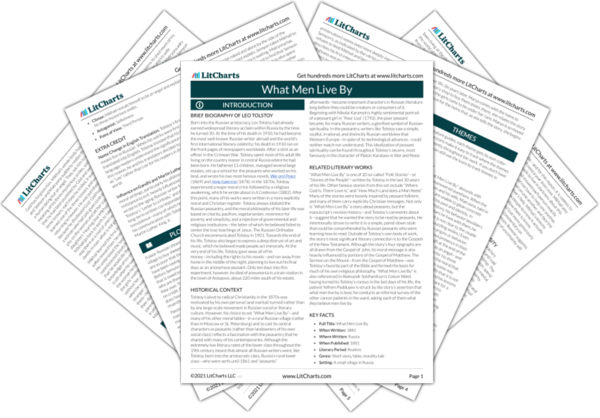Semyon’s reaction to the sight of a suffering person on the roadside is a continuation of his self-pity and self-absorption. His first thought, recognizing that this person may be dead or seriously injured, is not pity or compassion, but instead fear for himself lest he should get unfairly blamed. It seems that Semyon’s struggles—and people’s selfishness toward him—have emotionally hardened him and made him selfish in turn.
